Tech
Rojoli Provides Cloud and Managed IT Services with Strong Local Commitment
Published
9 months agoon
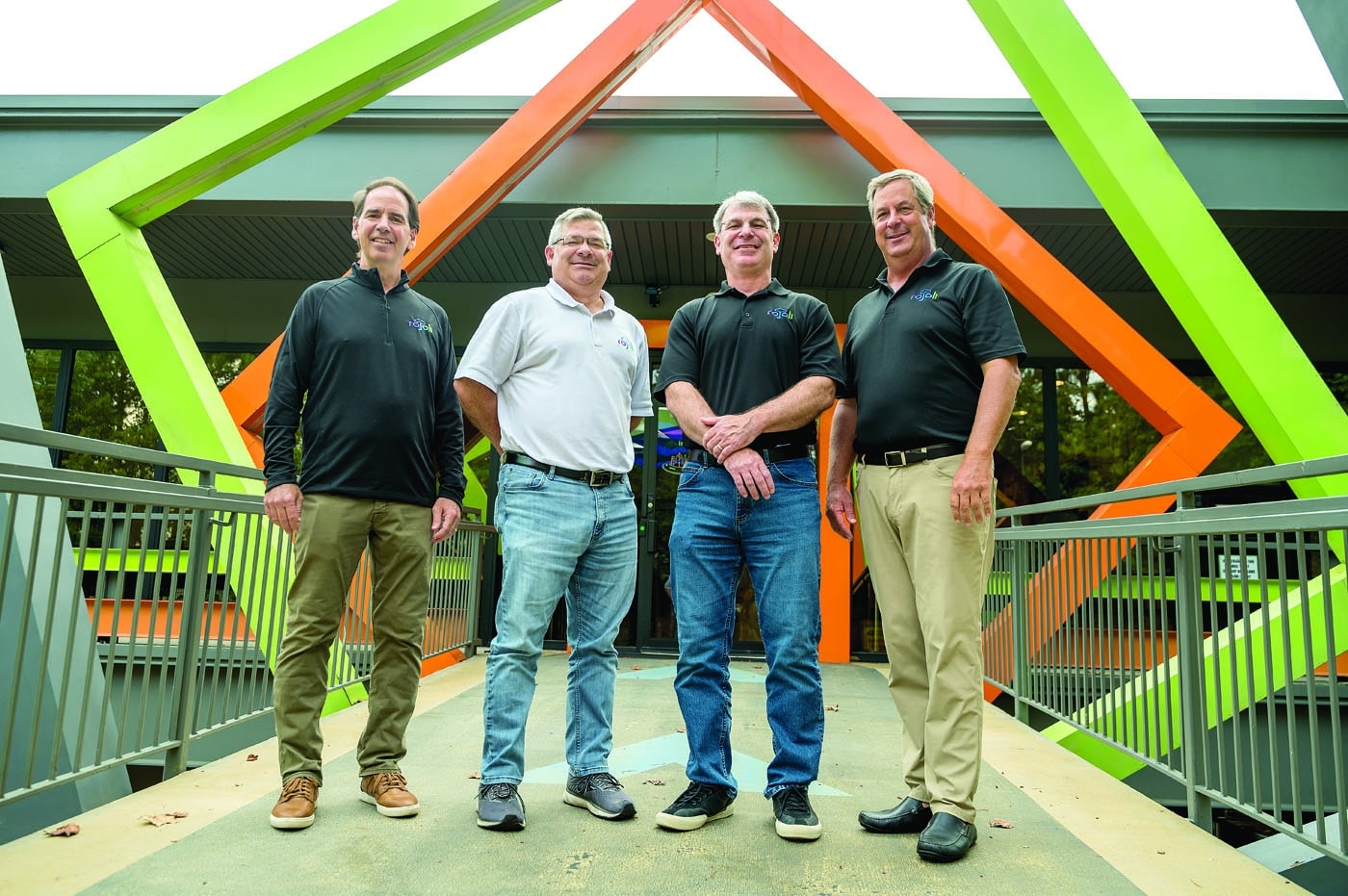
From his desk in the Rojoli Services, Inc. offices at the Curiosity Lab, Rojoli CEO Gentry Ganote can watch construction progress on more buildings to house self-driving cars.
To anyone familiar with Peachtree Corners and Technology Park — the city’s sprawling 500-acre center for engineering and technology companies — the sight of an autonomous shuttle going down the road still sparks interest.
Along with Tech Park’s 5G infrastructure and numerous prototypes for smart city devices, the shuttle is a symbol of the area’s commitment to innovation and advancements in high-tech.
High-tech can improve people’s lives and continue pushing the limits of what was previously thought possible.
And while Rojoli’s work may not be as visible to someone walking down the street, it’s no less impactful or important. A large number of small businesses in Peachtree Corners and beyond rely on it for cloud and IT services.
From burgeoning tech to established provider
In 2008, cloud computing was just beginning to take off. Amazon had only launched its cloud computing division, Amazon Web Services (AWS), two years earlier. Microsoft followed close behind in October 2008 with the launch of Azure.
Now, multibillion-dollar companies are responsible for the IT infrastructure powering large swathes of the internet.
Many industry experts were unsure if the services that companies like AWS and Azure sold — known as Infrastructure as a Service (IaaS) in tech-speak — would catch on in the mainstream. But to Ganote, this emerging market seemed like a good opportunity.
Ganote worked as the chief information officer (CIO) at the PGA Tour Superstore before getting into cloud computing.
During his time there, he and his team began implementing some infrastructure virtualization — one of the main technologies that makes cloud computing possible.
“I really felt that [cloud computing] was going to be big and take off. I had some colleagues that were in the IT field looking to host stuff, and I just thought that it was an opportunity,” Ganote said. “I ended up starting with a couple of customers and started the hosting company in 2008. I was just one man for a year, year and a half.”
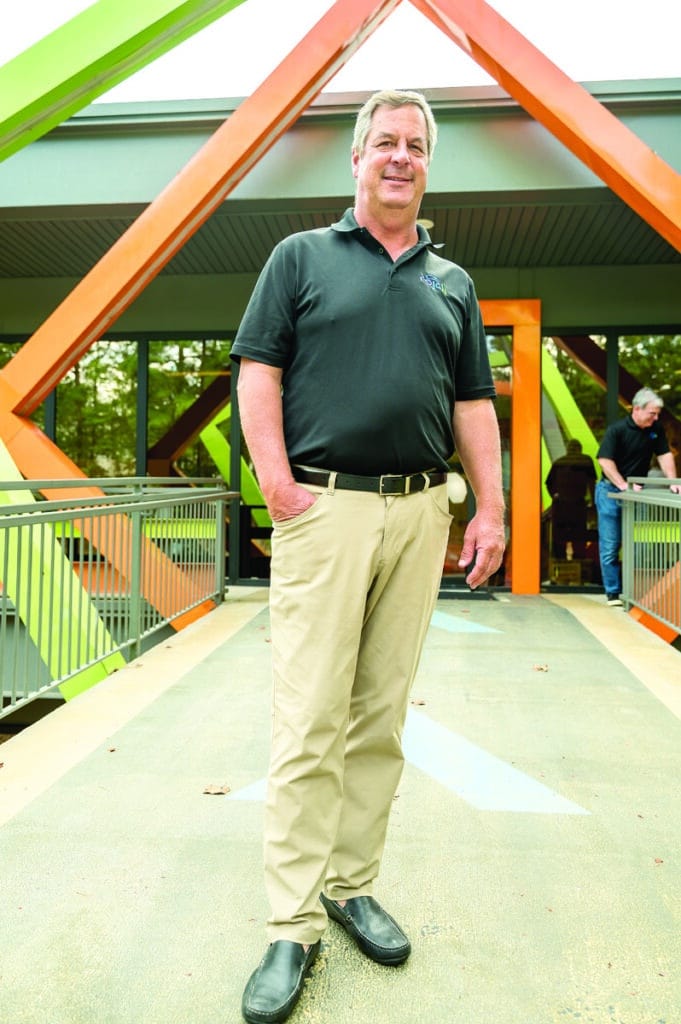
Over the next two years, Ganote steadily grew the business, going on to merge in 2010 with another local small business founded by Stan and Brad Allen.
Stan and Brad had some customers in need of IaaS and managed services, a type of outsourcing where a company hires a vendor like Rojoli to manage and monitor its IT network.
With the merger, Rojoli became a managed IT service provider (MSP) and cloud hosting company. The company took on bigger clients while continuing to serve the small business communities of Metro Atlanta and the state of Georgia.
In 2019, the company merged again. This time with a fellow Peachtree Corners-based company called Cloud AG, founded in 2013 by David Huseonica.
Today, Rojoli offers several services, from its original cloud hosting service to managed IT services to data backup and recovery as well as Microsoft 365 and Exchange implementation.
The company operates data centers in New York and Georgia, providing cloud and IT services to national companies in addition to many small businesses in the Peach State.
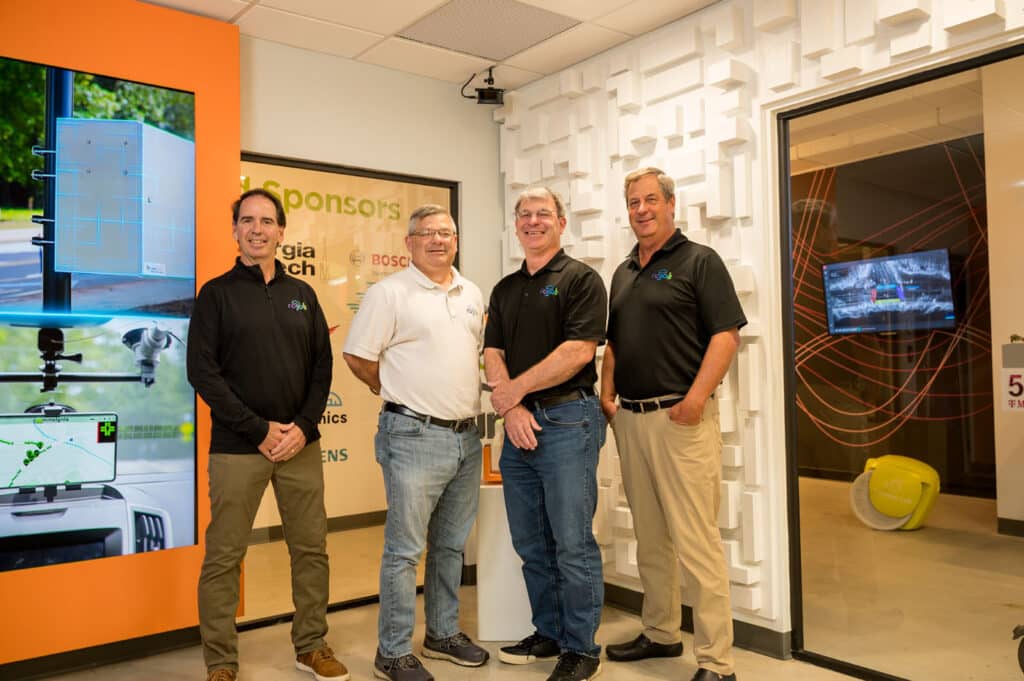
Local roots run deep
Rojoli originally started in downtown Norcross before moving to Technology Park’s Curiosity Lab around 2015, but the company has deep ties to the area. Ganote himself went to Norcross High School before earning his bachelor’s in computer science from the University of Georgia.
While a student at UGA, he got his first job as a software developer for a company based in Technology Park. Now, nearly 40 years later, Ganote is still happy to call Peachtree Corners home — both for him, his family and the business.
“I’ve had an affinity for this location,” he said. “I grew up here, I went to Norcross High School. So for me, it’s personal… I’ve been here for a long time, and I really appreciate the vibe and the whole area.”
For Rojoli, it’s especially important to be part of the Technology Park business community. Local real estate developer Paul Duke initially envisioned Peachtree Corners and Technology Park in the late 1960s as a close-knit community where people could live, work and play.
He also pictured it as a place to host technology companies to employ new engineering, technology and business graduates from Georgia Tech and UGA.
GE and Scientific Atlanta (now part of Cisco Systems) were some of the first businesses in the office park. It’s only grown since then and includes a number of technology companies, not to mention one of the country’s only roadways for autonomous vehicles.
There is also Curiosity Labs, a business accelerator for companies developing smart city technology. Tech Park has a rich history of technological innovation, and Ganote says it continues to change today.
“It’s got a good atmosphere,” he said. “There’s always something going on.”
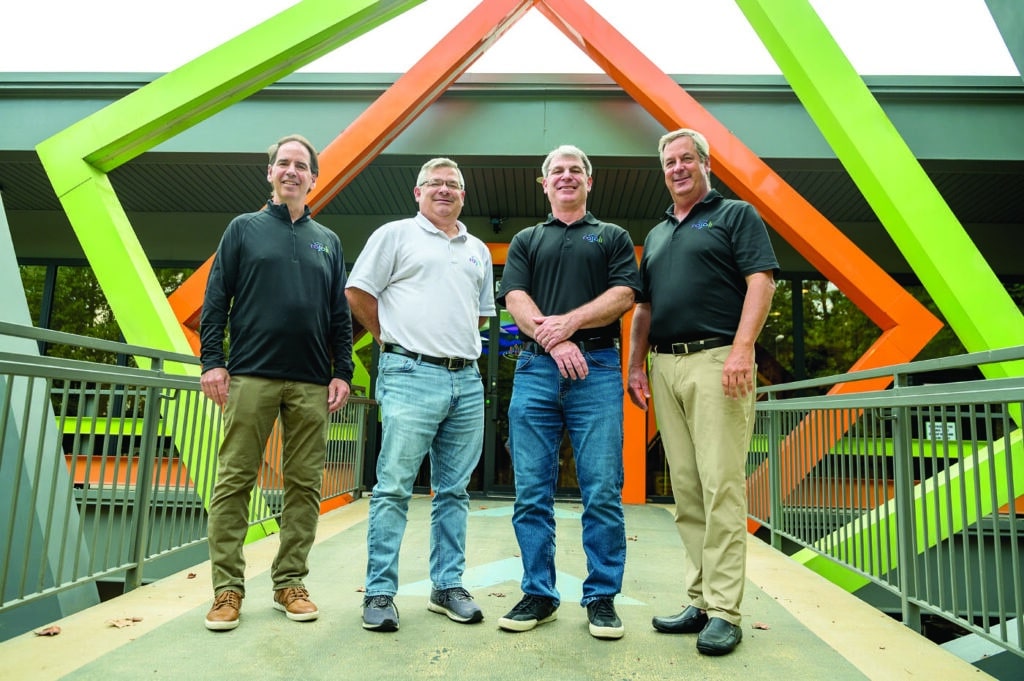
Aside from participation in a culture of progress and innovation, being in the area also helps Rojoli provide excellent service to its customers.
Ganote described Rojoli’s cloud hosting business as “high-touch boutique hosting.” He said it provides value to local businesses that need help removing some of the complexity of large cloud service providers like Microsoft Azure and AWS.
Having a local presence makes it easier for Rojoli to help local businesses that may be facing challenges associated with aging on-premises IT infrastructure.
Tech help and peace of mind
As systems age and become outdated, maintaining them can become increasingly difficult and costly for the businesses that rely on them.
Rojoli helps alleviate these pain points for small businesses by either managing on-premises systems or by providing cloud hosting, which generally offers lower costs and better reliability.
This is especially important, Ganote said, for companies with large remote workforces who rely on collaboration tools like Microsoft Teams and Zoom to stay connected.
“It makes a lot more sense to put [IT systems] into the cloud,” Ganote said. “It’s up 24/7, 365. The network connectivity is always on, so it provides a much more solid, secure and redundant system.”
This is Rojoli’s niche, and it’s where Ganote sees the company continuing to expand in the years ahead.
Because of its unique relationship with the local business community, Rojoli can provide more of a boutique experience than might be found elsewhere or with more nationally focused MSPs and cloud providers.
Like buying from a local shop versus a big box retail chain, the difference for Rojoli is about relationships and providing a personalized touch.
This approach makes it a unique member of the local business community in Peachtree Corners and across the state.

Content supported by community-minded companies and organizations like Clearwave Fiber helps us produce editorially independent content. They are companies that underwrite us in additional ways beyond their print advertising.
Photos by George Hunter
Related
Forrest Brown is a freelance journalist and content marketer from Metro Atlanta. He has written for Facing South and currently writes Sticky Weather, a biweekly newsletter covering climate and sustainability in the South.

Tech
Network Optix Partners with Curiosity Lab to Launch Brand New Transportation Tech
Published
2 months agoon
May 27, 2024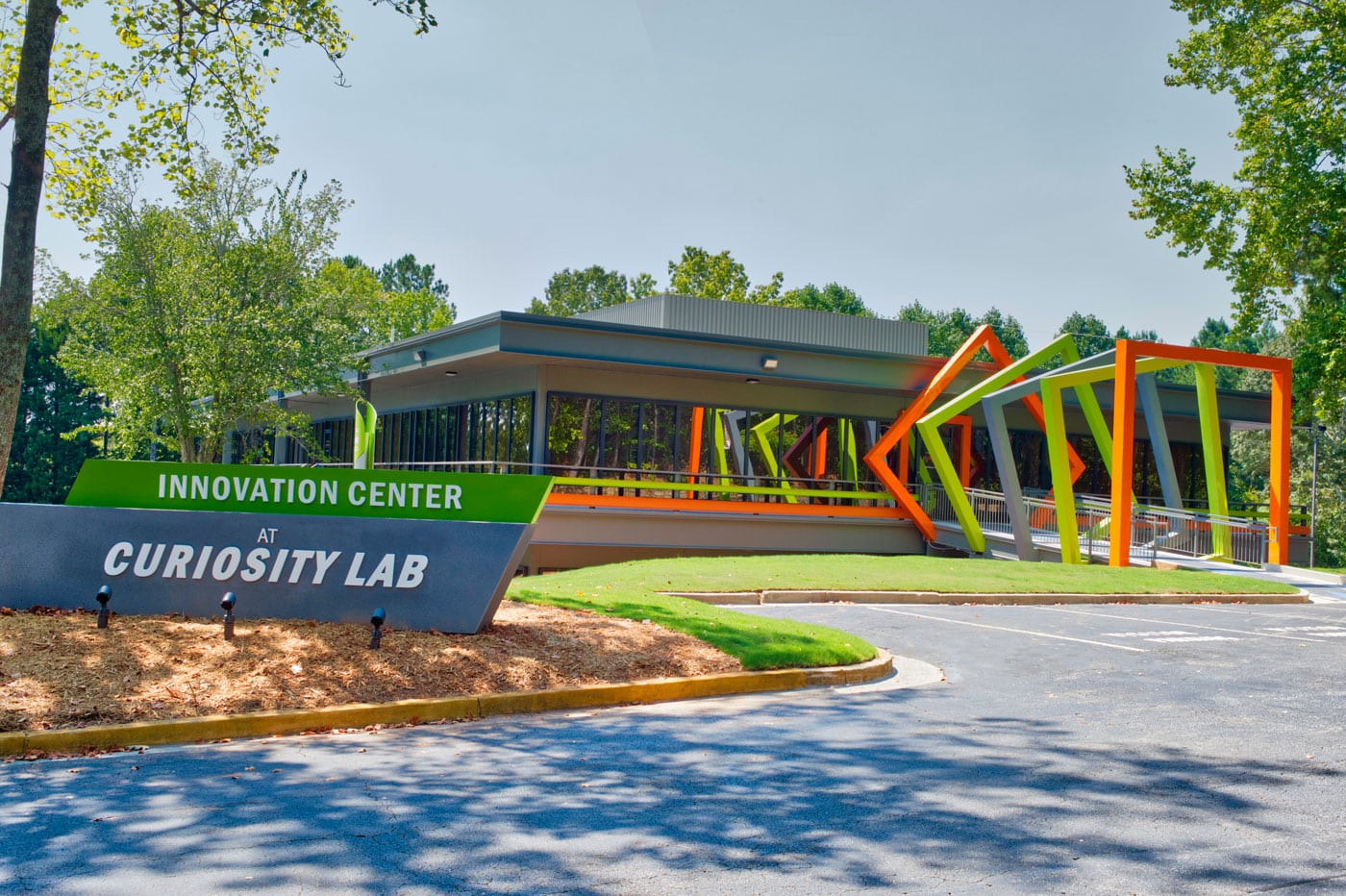
Peachtree Corners has announced that enterprise video software company Network Optix has partnered with Curiosity Lab. The partnership will integrate Network Optix’s award-winning Nx Go solution, tailored for traffic infrastructure, into the city’s “IoT Control Room.” This marks the first time that the company’s technology has been deployed as a full solution in the U.S.
“Our IoT Control room has been a model for how other smart cities across the world can aggregate massive amounts of data from sensors across connected infrastructure into the future – so it was only fitting that we partner with Network Optix to process and display traffic sensor data,” said Curiosity Lab Executive Director Brandon Branham.
“From fixed LiDAR to traffic camera feeds delivered over the 5G network, this data is critical to city operations that ensure roadway safety for autonomous vehicles, regular drivers and pedestrians,” he added.
Nx Go software takes a wide array of devices into a single, cohesive network to simplify management and amplify data-generation capacity of infrastructure.
At Peachtree Corners, cellular vehicle-to-everything (C-V2X) powered roadways feature sensors and devices installed across light and traffic signal fixtures, crosswalks, buildings and more, to communicate with connected vehicles, autonomous vehicles and pedestrians.
The management and viewing of information are critical components to managing the smart city. The transportation solution, poised to expand across the country, also helps generate critical data such as intersection analytics, car counts, lane usage and more to enhance operational efficiency and data utilization.
“This is the only location with the full Nx Go technologies available, allowing us to fully showcase the extent of sensors, LiDAR and more the city has deployed across their smart city ecosystem,” said – Network Optix Director of Mobility Platform Business Development Marc Faubert.
“Having Nx Go as the visual to display such technology gives Peachtree Corners a single pane of glass to be proactive and monitor, evaluate and implement various strategies to improve the city. With Peachtree Corners government’s leadership always innovating, there was no better place to integrate our solution first than in the heart of what’s becoming known as ‘Silicon Orchard’ by technology developers globally,” he explained.
For more information, contact Peachtree@goDRIVEN360.com.
Read more news from Curiosity Lab here.
Related
Public Safety
Seyond Collaborates with Curiosity Lab and Peachtree Corners to Deploy Traffic Safety Tech
Published
3 months agoon
May 6, 2024
Peachtree Corners, one of the United States’ first 5G smart cities, announced a collaboration with Seyond, a global provider of image-grade LiDAR technology.
Through this collaboration, Seyond will deploy and validate its LiDAR solutions in a real-world environment in an effort to create safer streets and smoother traffic flow for both vehicles and vulnerable road users (VRUs) in the city.
Seyond’s LiDAR solution is already deployed within Curiosity Lab’s smart city ecosystem and at a select intersection in the City of Peachtree Corners.
These locations use a combination of Seyond’s LiDAR, OmniVidi Perception Service Software Platform and Blue-Band Integrator AI to provide a real-time 3D mapping of the areas, with both vehicles and pedestrian object detection.
These combined technologies collect data that can be used to implement traffic and VRU signal solutions to make intersections safer and more efficient, while also protecting citizen privacy.
The collected data from Seyond’s data and Blue-Band’s analysis can be used by Peachtree Corners to adjust traffic signals, pedestrian crossing signals, intersection design and more to address specific safety and efficiency needs.
“Curiosity Lab’s shared public domain available for testing, deployment and validation is one of the many characteristics that attracted us to collaborate with the organization,”
“By collecting data from high-volume intersections across vehicular and pedestrian traffic, we will be able to improve the quality and reliability of detection results, which can help validate Intelligent Traffic Solution-based use cases,” said Seyond Co-founder and CEO Junwei Bao.
“Our technology can be used at a signal intersection but also across parking, large areas of pedestrian crossings and more. Curiosity Lab and Peachtree Corners will allow us to explore these use cases in a real-world environment as we continue to advance and validate our solutions for public use to improve safety for all,” he added.
Seyond’s LiDAR system is able to map large environments up to 1,640-foot range that would usually require multiple traffic cameras. The hardware, originally developed and tested for autonomous vehicles, is manufactured to be automotive-grade and has been designed to withstand extreme weather conditions.

These capabilities enable Curiosity Lab and Peachtree Corners to have accurate monitoring 24/7 to make the most educated intelligent transport updates to meet the needs of citizens and visitors.
“LiDAR technology is going to change the way cities look at managing vehicular and pedestrian traffic,” said Curiosity Lab Executive Director Brandon Branham. “
LiDAR allows the city to collect data on traffic movement, congestion, wrecks, near misses and even pedestrian activity, while protecting everyone’s privacy. Seyond’s solution takes the capabilities of LiDAR one step further and enables us as a city to evaluate how we can make our major intersections safer and more efficient for VRUs and everyday traffic,” he explained.
Learn more about Seyond’s technologies at seyond.com.
Related
Business
Axon Accelerates Real-Time Operations Solution with Strategic Acquisition of Fusus
Published
6 months agoon
February 8, 2024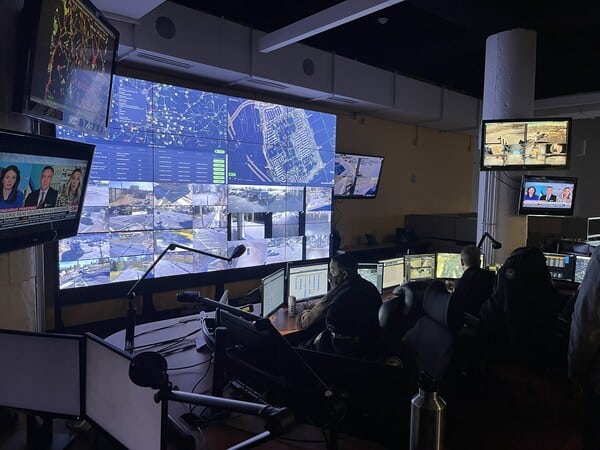
Axon, a leader in connected public safety technologies, announced it has acquired Fusus, a pioneer in real-time crime center (RTCC) technology.
This news builds upon a successful strategic partnership launched in May 2022, marking a decisive leap forward in Axon’s mission to Protect Life.
This acquisition also further catalyzes Axon’s growing presence in retail, healthcare, private security and the federal space.
Fusus excels in aggregating live video, data and sensor feeds from virtually any source, enhancing situational awareness and investigative capabilities for public safety, education and commercial customers.
This acquisition provides Axon with technology not currently in its existing network, and facilitates seamless connections to critical data sources such as camera locations and video feeds from both fixed and body worn cameras during incidents.
Fusus’ technology propels Axon’s real-time operations product roadmap, addressing critical challenges faced in public safety.
It empowers law enforcement professionals with location mapping, escalation alerts, livestreaming, real-time and post-incident visibility, allowing swift decision-making, and responsive actions.
“Throughout our long-standing partnership and investment with Fusus, we’ve witnessed the impact of collaboration in achieving remarkable results for law enforcement agencies and the communities they serve,” said Ran Mokady, Axon’s Senior Vice President of Real-Time Operations.
“This acquisition is a significant milestone in our mission to protect life as it further enables law enforcement and emergency teams to better deter and respond to escalating situations,” he added.
“Our collaboration with Axon has helped Fusus raise the bar on how first responders can affect positive outcomes through open and interoperable systems,” said Chris Lindenau, CEO of Fusus.
“As one team with a shared purpose to protect life, we are poised to rapidly expand this vision into the way law enforcement agencies, governments, businesses and schools work together in support of community safety,” he explained.
Real-time crime centers provide public safety with a centralized facility equipped with advanced technology and data analysis tools that enable law enforcement agencies to monitor and respond to incidents in real time.
These centers can integrate various data sources, such as cameras, sensors, social media feeds and other information systems, to provide a comprehensive and immediate view of ongoing criminal activities or emergencies.
Ultimately, by aggregating all of this information into a single pane of glass for public safety, real-time crime centers enhance situational awareness, improve response times and support proactive crime prevention efforts by leveraging up-to-the-minute information and analytics.
To learn more about how real-time crime centers can increase safety in any environment, see Axon’s latest blog post.
“Real-time crime centers serve as indispensable assets for agencies, offering unparalleled insight and actionable intelligence in one open and unified platform,” said Marshall Freeman, Deputy Chief Administrative Officer for the Atlanta Police Department.
Just like Axon, Fusus and its products are built from the ground up with an explicit focus on ethical and equitable design.
As a joint organization and in partnership with Axon’s Ethics and Equity Advisory Council (EEAC), they will continue their relentless commitment to build solutions that make the right things easier and the wrong things harder, every day.
The terms of the transaction were not disclosed. Axon was advised by Morgan, Lewis & Bockius LLP and Fusus was advised by Willkie Farr & Gallagher LLP in connection with the transaction.
Related
Read the Digital Edition
Subscribe
Keep Up With Peachtree Corners News
Join our mailing list to receive the latest news and updates from our team.
You have Successfully Subscribed!

What’s going on at Jones Bridge Park and the Challenges of Urban Development

Taste of Peachtree Corners: PCBA Showcases Local Restaurants

The Forum Gives Sneak Peek of New Eateries and Community Spaces

Southwest Gwinnett Mayors Share Visions for the Future

8 Events Happening In and Around Peachtree Corners This August

Peachtree Corners Shines Bright with Light Up the Corners Glow Race this August

Peachtree Corners Shines Bright with Light Up the Corners Glow Race this August

The Forum Gives Sneak Peek of New Eateries and Community Spaces

8 Events Happening In and Around Peachtree Corners This August

Southwest Gwinnett Mayors Share Visions for the Future

Taste of Peachtree Corners: PCBA Showcases Local Restaurants

What’s going on at Jones Bridge Park and the Challenges of Urban Development

Local Resident Opens AtWork Location in Peachtree Corners

CHRIS 180 Expands its Services into Gwinnett County [Podcast]

Light up the Corners [Video]

Capitalist Sage: Business Leadership in Your Community [Podcast]

Cliff Bramble: A Culinary Adventure through Italy

Top 10 Brunch Places in Gwinnett County

A Hunger for Hospitality

THE CORNERS EPISODE 3 – BLAXICAN PART 1

Top 10 Indoor Things To Do This Winter

The ED Hour: What it takes to Remove Barriers from Education
Peachtree Corners Life
Topics and Categories
Trending
-
Business1 week ago
Taste of Peachtree Corners: PCBA Showcases Local Restaurants
-
Business2 days ago
The Forum Gives Sneak Peek of New Eateries and Community Spaces
-
City Government4 days ago
Southwest Gwinnett Mayors Share Visions for the Future
-
Around Atlanta4 days ago
8 Events Happening In and Around Peachtree Corners This August






